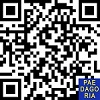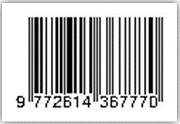EFEKTIVITAS PENERAPAN PEMBELAJARAN STATISTIKA BERBANTUAN APLIKASI SPSS TERHADAP HASIL BELAJAR MAHASISWA
Abstract
Abstrak: Tujuan penelitian ini adalah untuk mengetahui keefektifan penerapan pembelajaran statistika berbantuan aplikasi SPSS terhadap peningkatan hasil belajar siswa dan untuk mengetahui respon siswa tentang penerapan pembelajaran statistika berbantuan SPSS. Desain penelitian yang digunakan adalah penelitian tindakan kelas sebanyak dua putaran yang diawali dengan pra-siklus, siklus I dan siklus ke II. Setiap siklus terdiri dari empat tahapan yaitu perencanaan, tindakan, observasi, dan refleksi. Penelitian ini dilaksanakan di Kelas D semester II Program Studi Teknik Informatika kampus Intitut Bisnis dan Teknologi Indonesia (INSTIKI), dengan jumlah sampel sebanyak 25 orang. Metode pengumpulan data dilakukan melalui observasi, catatan lapangan, dokumentasi, metode angket respon dan tes hasil belajar. Dari hasil analisis didapatkan bahwa rata-rata hasil belajar mahasiswa mengalami peningkatan dari siklus I sampai siklus II, yaitu siklus I (71,48) dan siklus II (81,76) dan peroleh angket respon pembelajaran statistika untuk indikator kesenagan mahasiswa sebesar 81%, Konsentrasi mahasiswa 84%, keterlibatan atau rasa ingin tahu mahasiswa sebesar 90%, dan minat mahasiswa sebesar 74%. Simpulan dari penelitian ini adalah penerapan pembelajaran statistika berbantuan aplikasi SPSS efektif digunakan untuk meningkatkan hasil belajar mahasiswa dan respon atau tanggapan yang positif mahasiswa berikan terhadap pembelajaran statistika berbantuan aplikasi SPSS.
Abstract: The purpose of this study was to determine the effectiveness of the application of SPSS application-assisted statistics learning to improve student learning outcomes and to determine student responses about the application of SPSS-assisted statistical learning. The research design used was two rounds of classroom action research starting with a pre-cycle, cycle I and cycle II. Each cycle consists of four stages, namely planning, action, observation and reflection. This research was conducted in Class D semester II of the Informatics Engineering Study Program in campus Intitut Bisnis dan Teknologi Indonesia (INSTIKI), with the number of samples is 25 people. Methods of data collection were carried out through observation, field notes, documentation, response questionnaire methods and learning achievement tests. From the results of the analysis, it was found that the average student learning outcomes had increased from cycle I to cycle II, namely cycle I (71.48) and cycle II (81.76) and the statistics learning response questionnaire for the student enjoyment indicator was 81%. Student concentration was 84%, student involvement or curiosity was 90%, and student interest was 74%. The conclusion of this research is that the application of statistics learning assisted by the SPSS application is effectively used to improve student learning outcomes and students give positive responses to statistics learning assisted by the SPSS application
Keywords
Full Text:
PDFReferences
Arikunto. 2015. Prosedur Penelitian Suatu Pendekatan Praktik, Jakarta: Rineka Cipta.
Alili, A., & Krstev, D. (2019). USING SPSS FOR RESEARCH AND DATA ANALYSIS. Knowledge International Journal. https://doi.org/10.35120/kij3203363a
Asfaw, A., Hailu, A., & Awol, H. (2022). Improving Skill of SPSS Software For Biology 3rd Year Students of Samara University in 2021: Action Research. Indonesian Journal of Statistics and Its Applications. https://doi.org/10.29244/ijsa.v6i1p133-142
Baglin, J. (2013). Applying a Theoretical Model for Explaining the Development of Technological Skills in Statistics Education. Technology Innovations in Statistics Education. https://doi.org/10.5070/t572013781
Bala, J. (2016). Contribution of SPSS in Social Sciences Research. International Journal of Advanced Research in Computer Science.
Daniel Arkkelin. (2014). Using SPSS to Understand Research and Data Analysis. Psychology Curricular Materials.
Field, A. (2013). Discovering statistics using IBM SPSS statistics. In Statistics.
Gogoi, P. (2020). Application of SPSS Programme in the Field of Social Science Research. International Journal of Recent Technology and Engineering (IJRTE), 8(5), 2424–2427.
Hayes, A. F. (2017). Using SPSS: A little syntax guide. Www.Afhayes.Com.
Herlina, H. (2021). IMPROVING STUDENT’S LEARNING OUTCOMES BY USING MICROSOFT EXCEL AND STATISTICAL PROGRAM OF SOCIAL SCIENCE. AKSIOMA: Jurnal Program Studi Pendidikan Matematika. https://doi.org/10.24127/ajpm.v10i3.3888
Ishak, A., Din, R., & Mohamed, H. (2018). Usability of ReSt module using four-step approach based on case study example and infographic for SPSS Novice users. International Journal on Advanced Science, Engineering and Information Technology. https://doi.org/10.18517/ijaseit.8.4-2.6815
Masood, A. & L. R. N. (2016). Determinants of behavioral intentions to use SPSS among students: Application of Technology Acceptance model (TAM). FWU Journal of Social Sciences, 10(2), 146–152.
Murana, S., & Rahimin, R. (2021). Application of SPSS Software in Statistical Learning to Improve Student Learning Outcomes. Indo-MathEdu Intellectuals Journal. https://doi.org/10.54373/imeij.v2i1.22
Nurhayati, N., & Novianti, N. (2020). PENGARUH SPSS TERHADAP HASIL BELAJAR PADA MATERI STATISTIKA DESKRIPTIF. AKSIOMA: Jurnal Program Studi Pendidikan Matematika. https://doi.org/10.24127/ajpm.v9i1.2609
Palaiologou, I. (2016). Children under five and digital technologies: implications for early years pedagogy. European Early Childhood Education Research Journal, 24(1), 5–24.
Pallant, J. (2013). A step-by-step guide to data analysis using SPSS version 15. In Open University Press, Maidenhead .
Sadchikova, A. S., & Rodin, M. M. (2017). The use of applied software for the professional training of students studying humanities. AIP Conference Proceedings. https://doi.org/10.1063/1.4972455
Sauddin, A. (2014). Exploratory Factor Analysis Decision Process : Guide for Students and Researchs – Bagian 1. Jurnal MSA (Matematika Dan Statistika Serta Aplikasinya.
Sumini. (2015). Penelitian Tindakan Kelas dan Pengembangan Profesi Guru. Jurnal Pendidikan.
Wahyuni, R., Nurhayati, & Jasmaniah. (2021). The Effect of E-Learning Towards the Implementation of Self-Regulated Learning (SRL) to the Students of Mathematics Education Study Program at Almuslim University. Proceedings of the 1st International Conference on Mathematics and Mathematics Education (ICMMEd 2020). https://doi.org/10.2991/assehr.k.210508.060
DOI: https://doi.org/10.31764/paedagoria.v14i4.17133
Refbacks
- There are currently no refbacks.
Copyright (c) 2023 Kadek Suryati

This work is licensed under a Creative Commons Attribution-ShareAlike 4.0 International License.
Paedagoria : Jurnal Kajian, Penelitian dan Pengembangan Kependidikan
Fakultas Keguruan & Ilmu Pendidikan | Universitas Muhammadiyah Mataram.
_______________________________________________
 | Paedagoria : Jurnal Kajian, Penelitian dan Pengembangan Kependidikan |
______________________________________________
CURRENT INDEXING:
EDITORIAL OFFICE:


















